 | Dugald Stewart - Logic - 1814 - 582 pages
...me" chanism of the world, but chiefly to resolve these and such " like questions : Whence is it thai Nature does nothing in vain ; " and whence arises all that order and beauty which we see in the v world ? — How came the bodies of animals to be contrived with so " much art, and for what ends... | |
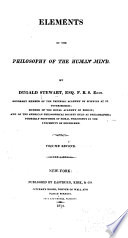 | Dugald Stewart - Psychology - 1814 - 560 pages
...mechanical ; and not only to unfold the mechanism of the world, but chiefly to resolve these and surh like questions : Whence is it that Nature does nothing in vain; and whence arises all that ordtr and beauty which we see in the world ; — Hotv centr the bodiea of animals to be contrived with... | |
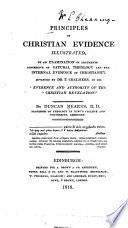 | Duncan Mearns - Apologetics - 1818 - 212 pages
...in the form ' of general laws ?' Far otherwise. The great purpose of philosophy, he declares to be ' not 'only to unfold the mechanism of the world> but...world? ' — How came the bodies of animals to be con' trived with so much art, and for what ends ' were their several parts ? — Was the eye con' trived... | |
 | Dugald Stewart - Psychology - 1821 - 348 pages
...sentiments on the present subject. " The main business of natural philosophy is to argue from phe" nomena, without feigning hypotheses, and to deduce causes...which we see in the world? — How came the bodies of ani" mals to be contrived with so much art, and for what ends were their u several parts ? Was the... | |
 | Dugald Stewart - Human information processing - 1822 - 572 pages
...certainly is not mechanical ; " and not only to unfold the mechanism of the world, but chiefly to re" solve these and such like questions: Whence is it that Nature...came the bodies of animals to be contrived " with so mitch art, and fur what ends were their several parts ? Was the " eye. contrived without skill in optics,... | |
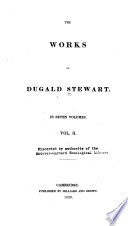 | Dugald Stewart - 1829 - 418 pages
...can do justice to his sentiments on the present subject. " The main business of natural philosophy is to argue from phenomena, without feigning hypotheses,...all that order and beauty which we see in the world 1 — How came the bodies of animals to be contrived with so much art, and for what ends were there... | |
 | Dugald Stewart - 1829 - 442 pages
...resolve these and such like questions : Whence is it that Nature does nothing in vain; and lohence arises all that order and beauty which we see in the...— How came the bodies of animals to be contrived tvith so much art, and for what ends were there several parts ? Was the eye contrived without skill... | |
 | Society for the Diffusion of Useful Knowledge (Great Britain) - Biography - 1833 - 606 pages
...planets gravitate towards one another, without dense matter between them ? Whence is it that nature doth nothing in vain, and whence arises all that order and beauty, which we see in the world ? To what end are comets, and whence is it that 'planets move all one and the same way, in orbs concentric,... | |
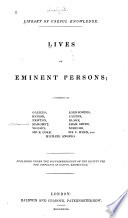 | Society for the Diffusion of Useful Knowledge (Great Britain) - Biography - 1833 - 584 pages
...planets gravitate' towards one another, without dense matter between them ? Whence is it that nature doth nothing in vain, and whence arises all that order and beauty, which we see in the world ? To what end are comets, and whence is it .that 'planets move all one and the same way, in orbs concentric,... | |
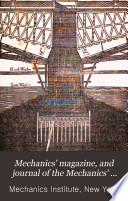 | Industrial arts - 1833 - 426 pages
...planets gravitate towards one another, without dense matter between them ? Whence is it that nature doth nothing in vain, and whence arises all that order and beauty which we see in the world Î To what end are comets, and whence is it that planets move all one and the same way, in orbs concentric,... | |
| |